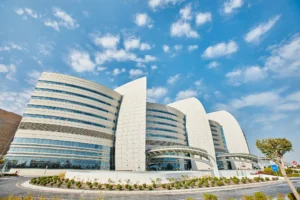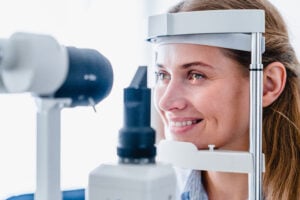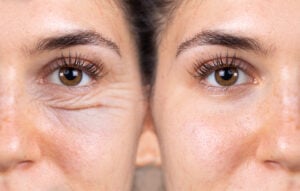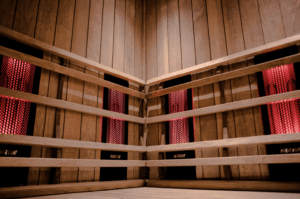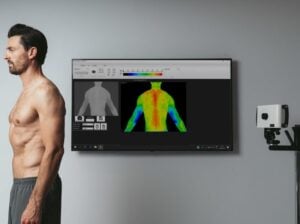Lifestyle diseases, chronic illnesses, mental health issues, and aggressive viruses have become more prevalent over the past decade as people face increasing stress, suffer from low immunity, and adopt unhealthy practices like smoking, eating unhealthy food, and living sedentary lifestyles.
Cardiovascular disease is the number one cause of death in the Middle East and North Africa region, according to the World Heart Organization. It is responsible for more than one-third of all deaths, or 1.4 million people each year. In Oman alone, 40% of total deaths are attributed to cardiovascular diseases.
According to a report by the International Diabetes Federation (IDF), by 2030, approximately 17.2% of the population of the United Arab Emirates (UAE) aged 20-79 years is expected to suffer from diabetes. In Saudi Arabia and Qatar, this number crosses 20%.
A research paper published by the World Health Organization in 2022 pointed out that while Middle Eastern countries were less prone to cancer than other parts of the world, a significant rise in numbers has been recorded in the past decade. Long-term projections show that, by 2030, there will be a 1.8-fold increase in cancer incidence in the region.
Today, health is an invaluable asset, and more and more people are looking for healthcare services that can provide high-quality treatments in international-standard facilities. This demand has given rise to a new standard of healthcare, with emerging players offering world-class services with the latest technology and globally trained medical professionals.
Strong government investment in healthcare
In the Middle East, the healthcare system has been provided this platform for development courtesy of various Arab governments that have invested in upscaling and supporting new initiatives. 2024’s budgets have all prioritized healthcare.
The UAE government has allocated AED 5.2 billion to healthcare and community protection in the 2024 budget, while Saudi Arabia has set aside SAR 214 billion for the health and social development sector. Qatar has allocated QAR 21.8 billion towards healthcare, and Oman’s state budget 2024 has apportioned OMR 51 million towards healthcare and education.
With support from federal governments and steadily increasing revenue from the sector, private funding has also increased exponentially.
Healthcare organizations to watch
Below is a list of healthcare companies in the Gulf that are making new roadways in the industry with technology, patient-centric treatment, and innovation:
Pure Health: In the United Arab Emirates (UAE), healthcare companies like Pure Health have made great strides in combining technological innovation with medical know-how. The country’s largest integrated healthcare network continues to partner with various technology companies like Dell Technologies and Siemens Healthineers to boost this effort. In a bid to expand its presence globally, Pure Health listed its IPO on the ADX Exchange in December 2023 to positive reactions. The group is actively expanding its asset base with investments in established entities in the UAE and overseas. Most recently, Pure Health acquired a 25 per cent stake in Abu Dhabi’s Sheikh Shakbout Medical City for Dh150 million and completed the acquisition of Circle Health, the UK’s largest privately-owned healthcare firm for $1.2 billion.
M42: Abu Dhabi-based AI technology holding group, G42, and Mubadala Investment Company launched M42 in 2023. This first-of-its-kind, tech-enabled, integrated healthcare company aims to provide preventative, precision medicine, including tailored therapies and proactive lifestyle changes based on high-quality research, robust data, and cutting-edge technology. The company recently launched Med42. The innovation is an open-access clinical large language model (LLM) equipped with 70 billion parameters designed to respond to medical questions and synthesize vast amounts of medical data. The Omics Centre of Excellence is another innovation by M42 that harnesses the power of genomic, clinical, and cross-disciplinary data to drive healthcare transformation, including the facilitation of the Emirati Genome Program.
EMBER Medical: The COVID-19 pandemic drove the medical sector to boost telemedicine and explore new technologies to remotely provide patients with the healthcare they require. EMBER Medical, a Qatar-based startup, was created to provide an all-in-one telemedicine platform. The company’s goal is to enable patients to connect with medical professionals and receive real-time diagnosis and treatment anywhere, at any time.
Waseel: Saudi Arabia’s Waseel – a leading health-tech company – has been working to bridge the gaps in the healthcare network, providing solutions for patients as well as care providers and insurance companies. Their portfolio of digital platforms works to improve claims reimbursement and streamline medication services, healthcare operations, and patient care.
Wareed: In Oman, Wareed is on the same track, offering an AI-driven healthcare platform for personalized medical guidance. The startup helps patients understand medical conditions and symptoms and provides a vast medical information repository to create more awareness within the medical community and among patients.
Elegancia Healthcare: Focused on providing international-standard medical care for its patients, Elegancia combines expertise with technology and patient-centric care. The company’s The View Hospital in Qatar set up in partnership with Cedars-Sinai, US, made headlines with its state-of-the-art robotics surgery unit and comprehensive inpatient and outpatient programs. The hospital has also partnered with various firms to drive innovation in the country’s healthcare sector.
Burjeel Holdings: UAE-based Burjeel Holdings, one of the leading private healthcare service providers in the MENA region, has made it their goal to provide a high standard of healthcare delivery and patient management across a network of hospitals, medical centers, pharmacies, and other services.
Abu Dhabi Stem Cells Center: Clinical application of cell therapy and regenerative medicine techniques are the main focus of the Abu Dhabi Stem Cells Center (ADSCC). The center delivers cutting-edge research on stem cell and cellular therapies in the region and offers highly specialized medical services and treatments. In January 2024, ADSCC announced a joint research agreement with the Kyoto University – Center for iPS Cell Research and Application (CiRA), and Rege Nephro, a Japan-based biotech company that specializes in R&D and production of renal disease therapeutics. The center’s goal is to offer advanced cellular therapy options for people with diabetes.
About MTM Global
MTM Global is a UK-based international healthcare consultancy and online travel agency specializing in premier health tourism.
For all corporate and media inquiries, click here.

